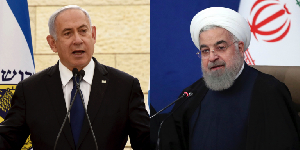Business News of Tuesday, 8 July 2025
Source: www.legit.ng
Trump threatens 10% tariff on Nigeria after BRICS partnership announcement
Following US President Donald Trump's warning that he would levy an additional 10% tariff on Nigeria for joining BRICS, there have been conflicting responses.
Following US President Donald Trump's warning that he would levy an additional 10% tariff on Nigeria for joining BRICS, there have been conflicting responses.
According to Daily Trust, President Trump declared that Nigeria would be one of several nations subject to an extra 10% tariff for supporting what he called the "anti-American policies of BRICS."
Global trade relations are now even more unpredictable after the U.S. president made the announcement on Sunday in a post on Truth Social.
Trump's remark, which did not go into detail about any particular BRICS policy, came as President Bola Tinubu was attending the group's final conference in Rio de Janeiro, Brazil.
Nigeria was recently admitted as a partner nation of the organisation by the Brazilian government on January 17, 2025. Nigeria joined Belarus, Bolivia, Cuba, Kazakhstan, Malaysia, Thailand, Uganda, and Uzbekistan as the ninth BRICS partner nation. The 16th BRICS Summit, which took place in Kazan in October 2024, established this partner-country category.
Brazil, Russia, India, China, South Africa, Saudi Arabia, Egypt, the United Arab Emirates, Ethiopia, Indonesia, and Iran are all members of the BRICS alliance.
The grouping describes itself as “a political and diplomatic coordination forum for countries from the Global South and for coordination in the most diverse areas.” Enhancing economic, political, and social cooperation among its members as well as "increasing the influence of Global South countries in international governance" are among the objectives of BRICS.
According to the Trump administration, tariffs on nations that have not reached a deal with the United States will go into effect on August 1 rather than July 9. The announcement was made in April. Trump declared in April that the broad tariffs he had placed on the majority of trading partners would be suspended for ninety days.
Investors and U.S. trading partners are worried about the implications of the tariffs as that pause is set to end on Wednesday.
The bloc’s leaders appeared to take aim at Trump’s sweeping tariff policies in a joint statement on Sunday, warning against unjustified unilateral protectionist measures, including the indiscriminate increase of reciprocal tariffs.
The leaders expressed grave concerns about the spread of unilateral tariffs and non-tariff measures that distort trade and violate WTO regulations, stating that the "proliferation of trade-restrictive actions" poses a threat to the global economy and exacerbates already-existing economic inequities.
Trump did, however, subtly warn Nigeria and other BRICS nations to prepare for the 10% extra charge.
“Any country aligning itself with the anti-American policies of BRICS will be charged an additional 10% tariff. There will be no exceptions to this policy,”
Trump said in a post on Truth Social Sunday evening.
Experts react
However, in order to avoid any disruptions to its trade with the US and BRICS countries, economic experts suggested that Nigeria be cautious and handle the matter diplomatically.
Professor Adeola Adenikinju, the president of the Nigeria Economic Society (NES), told our correspondent that Nigeria shouldn't be concerned about President Trump's threat because the country doesn't export a lot to the United States.
He questioned Donald Trump's intention to charge currently tax-free exports of gas and oil.
He said, “Our non-oil export to the US is very small. In terms of the real impact to our economy, it may not be that significant. Nigeria would have to compare the costs and benefits, what are the benefits of aligning with BRICS. One, China is our largest importer, most of our goods are from China.
“Our exports go to Europe and India. China is a member of BRICS, India is a member of BRICS, South Africa is a member.
Economist and Chief Executive Officer, Centre for the Promotion of Private Enterprises (CPPE), Dr. Muda Yusuf advised Nigeria to handle the issue very carefully to avoid direct confrontation with the US without undermining our sovereignty.
He stated that imposing the 10% tariff on Nigeria could “affect our trade with the United States,” adding, “We do some exports of oil although US is also a major oil producer and it still exports some oil and gas products. Dangote Refinery has been exporting a few things like fertiliser and other petroleum products to the United State. We don’t want to jeopardise it.”












